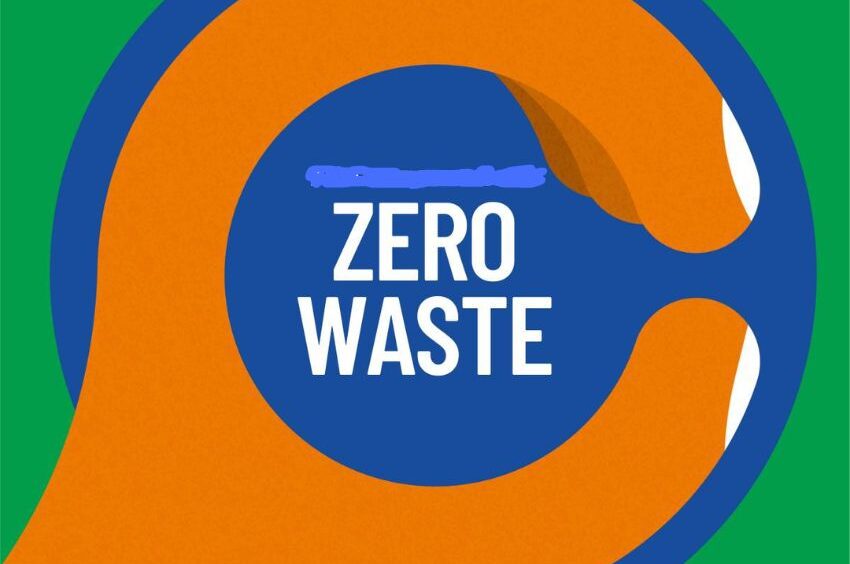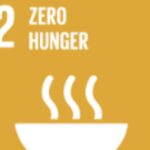Uniting For Sustainability: Community Strategies For A Zero-waste Future

It is both alarming and sobering to recognise that waste pollution has infiltrated even the planet’s most extreme and remote environments
Byline: Summit Salunke, Vice Chairman of Sumeet Group Enterprises
It is both alarming and sobering to recognise that waste pollution has infiltrated even the planet’s most extreme and remote environments. Scientific research has confirmed the presence of microplastics at Earth’s highest peak, Mount Everest, and its deepest abyss, the Mariana Trench. As urbanisation accelerates, evolving consumption patterns intensify the challenges of systematic waste management.
India generates approximately 62 million tonne of waste annually, with a staggering growth rate of 4 per cent per year. Urban areas contribute significantly to this crisis, producing around 150,000 tonne of solid waste daily. In Mumbai alone, the situation is dire, with the city generating nearly 7,000 metric tonne of refuse each day, of which approximately 73 per cent is organic food waste, according to 2023 reports. Looking ahead, global municipal solid waste is projected to rise from 2.1 billion tonne in 2023 to 3.8 billion tonne by 2050. Overflowing landfills, such as Deonar and Kanjurmarg in Mumbai, serve as glaring reminders of the urgent need for innovative and sustainable waste management solutions.
While government-led initiatives such as the Swachh Bharat Mission-Urban 2.0 lay a critical foundation for waste reduction, individual and community-driven efforts are indispensable in addressing waste at its source. A shift toward a circular consumption model—where products are reused, repaired, and recycled—can significantly mitigate waste generation. Every small action contributes to a larger movement toward a sustainable, waste-free world.
This article explores practical strategies that individuals and communities can adopt to accelerate the transition to a zero-waste lifestyle, ensuring a healthier planet for future generations.
Prioritise Reusables And Sustainable Alternatives
Replacing single-use products with durable, reusable alternatives is one of the simplest yet most impactful steps toward waste reduction. Opt for fabric shopping bags, refillable containers, metal straws, reusable coffee cups, and water bottles. Additionally, choosing products with minimal or eco-friendly packaging reduces plastic waste while lowering the carbon footprint associated with production and transportation.
Strengthen Local Recycling Initiatives
Effective recycling begins with responsible waste segregation at the source. Households and businesses should actively sort waste into recyclables—such as paper, glass, metals, and plastics—to ensure proper processing and prevent valuable materials from ending up in landfills. Community-wide education programs can further enhance awareness and adherence to recycling best practices, fostering a culture of sustainability and responsible waste disposal.
Promote Composting To Reduce Organic Waste
Organic waste constitutes a significant portion of urban waste. Instead of allowing food scraps to contribute to landfill overflow, they can be transformed into nutrient-rich compost, benefiting local agriculture and community gardens. Establishing centralized composting facilities, along with encouraging households and schools to adopt composting practices, can play a vital role in diverting organic waste from landfills while enhancing soil health.
Leverage Advanced Waste Management Technologies
Modern technology offers innovative solutions for efficient waste management. Waste compactors, which compress waste materials to reduce volume, can be installed in residential complexes, commercial areas, and public spaces to streamline waste collection. Additionally, countertop composters enable households to process food waste efficiently, diverting significant organic matter from landfills. Such advancements not only minimize waste accumulation but also contribute to cleaner, more sustainable urban environments.
Cultivate Community Engagement And Education
Sustainability thrives on collective action. Organizing workshops and community events on topics such as eco-friendly cleaning products, sustainable living practices, and effective recycling can inspire individuals to adopt lasting environmentally friendly habits. Schools and local organizations should integrate waste management awareness into educational curriculums to instill sustainability values from an early age.
Advocate For Stronger Waste Management Policies
Comprehensive policy frameworks are crucial for achieving long-term waste reduction. Supporting legislation that promotes responsible waste disposal, incentives for adopting sustainable practices, and penalties for environmental violations can drive significant change. Local governments should enforce mandatory recycling programs and promote extended producer responsibility (EPR) to hold manufacturers accountable for waste generated by their products.
Actionable Insights for Citizens
Individuals play a crucial role in driving sustainable change. Here are some immediate actions everyone can take:
• Adopt Minimalist Living: Buy only what is necessary to reduce wasteful consumption
•Refuse Single-Use Plastics: Carry reusable alternatives such as metal straws, cloth bags, and bamboo cutlery
•Upcycle and Repurpose: Get creative by repurposing items instead of discarding them
•Choose Sustainable Brands: Support businesses that prioritize eco-friendly packaging and ethical production
•Reduce Food Waste: Plan meals efficiently, store food properly, and donate excess food to minimize waste
•Participate in Clean-Up Drives: Join community-led clean-up initiatives to contribute to a cleaner environment
The Power Of Collective Action
The scale of today’s waste crisis can feel overwhelming, but real change begins with individual choices. By integrating reusables into daily routines, recycling diligently, composting organic waste, and embracing cutting-edge waste management technologies, communities can drastically reduce landfill contributions.
Change starts with small, consistent actions, and when communities unite toward a shared vision of sustainability, the impact is profound. Let us commit to making mindful choices today—not only to preserve our environment but also to inspire others to join the movement. A zero-waste future is within reach, and it begins with each of us.
Disclaimer: The views expressed in this article are those of the author and do not necessarily reflect the views of the publication.





































































































































































































































































































































































































































































































































































































































































































































































































































































































































































































































































































































































































